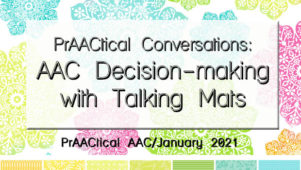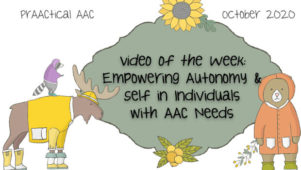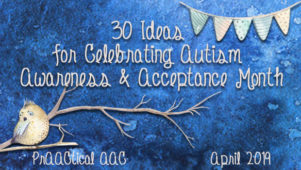AAC: 4 Ways to Develop Self Advocacy Skills & Become A Self Advocate
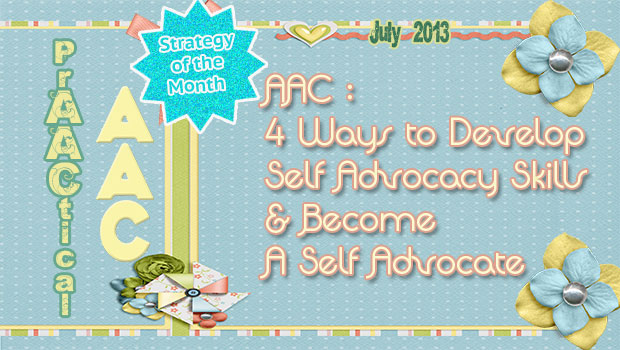
Self Advocacy comes in many shapes and forms for all learners. We all need to have a level of self advocacy skills to have a positive self-esteem, to continue a path of life long learning, and to defend and protect ourselves in situations that potentially can be harmful. The teaching of self advocacy begins with learning to request and protest but goes way beyond that for ALL learners. For those with AAC needs, specific strategies and direct instruction are often necessary to make self advocacy a comprehensive and robust skill. Self advocacy skills are a priority for older learners so for our Strategy of the Month, we will discuss some ways to help develop self advocacy skills beyond the requesting and protesting levels. We hope to build strong self advocacy skills for ALL learners.
 Rating Scales– Teach the use of rating scales to help AAC learners give their opinions on everything from how much they like something, pain levels, to how fair they think you are being to them. We make an almost unlimited amount of positive and negative judgements each day (whether we tell everyone or only a few trusted people). As SLP’s and educators, we often like everything to be ‘great’ and positive but it is important to accept and expand on ‘not liking’ or questioning the fairness of people and experiences. Visual rating scales such as the Incredible 5 Point Scale or those illustrated Carole’s PrAACtical AAC post 5 Easy Ways to Use Rating Scales to Enhance Communication with AAC will help form a wide range of self advocacy skills
Rating Scales– Teach the use of rating scales to help AAC learners give their opinions on everything from how much they like something, pain levels, to how fair they think you are being to them. We make an almost unlimited amount of positive and negative judgements each day (whether we tell everyone or only a few trusted people). As SLP’s and educators, we often like everything to be ‘great’ and positive but it is important to accept and expand on ‘not liking’ or questioning the fairness of people and experiences. Visual rating scales such as the Incredible 5 Point Scale or those illustrated Carole’s PrAACtical AAC post 5 Easy Ways to Use Rating Scales to Enhance Communication with AAC will help form a wide range of self advocacy skills
 Teach Health & Safety– Safety is the most basic of the self advocacy skills. We want everyone to have the skills to tell about their health, well-being, and of course safety. We should be prioritizing teaching how to tell if you are ill to talking about and discussing issues of abuse, medical, physical, and emotional safety. We need to think about types of symbols we use to represent sensitive concepts, how often we model and talk about these sometimes difficult topics, as well as prAACtice problem solving and role-playing possible situations. As always, there are even apps for learning to talk about pain illness and injury.
Teach Health & Safety– Safety is the most basic of the self advocacy skills. We want everyone to have the skills to tell about their health, well-being, and of course safety. We should be prioritizing teaching how to tell if you are ill to talking about and discussing issues of abuse, medical, physical, and emotional safety. We need to think about types of symbols we use to represent sensitive concepts, how often we model and talk about these sometimes difficult topics, as well as prAACtice problem solving and role-playing possible situations. As always, there are even apps for learning to talk about pain illness and injury.
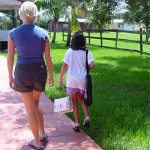 Teach Operational Competencies- Operational competency for AAC involve the technical skills needed to operate the AAC system. As early as possible, teach the AAC user to carry and take the AAC device with them. Teach the learner to make sure parents and teachers don’t forget to take the device or charge it if the AAC learner can not physically do it. Of course, also teach the AAC learner to ‘report’ a problem is the device is not working. All of these skills are part of operational competencies that range from the emergent to the creative independent communicator and it is all part of the process of building self advocacy skills. Check out Dynavox InterAct Framework for a grid with a checklist of operational competencies (and more).
Teach Operational Competencies- Operational competency for AAC involve the technical skills needed to operate the AAC system. As early as possible, teach the AAC user to carry and take the AAC device with them. Teach the learner to make sure parents and teachers don’t forget to take the device or charge it if the AAC learner can not physically do it. Of course, also teach the AAC learner to ‘report’ a problem is the device is not working. All of these skills are part of operational competencies that range from the emergent to the creative independent communicator and it is all part of the process of building self advocacy skills. Check out Dynavox InterAct Framework for a grid with a checklist of operational competencies (and more).
 Role Models- Find role models of AAC users as well as AAC public self advocates and introduce them in person,or through mentor projects, books, essays, videos, movies etc. to AAC learners. There needs to be role models of all shapes, sizes, colors, strengths, and weaknesses to show us possibilities beyond what we know and have seen. Check out How Katie Got a Voice (and a cool new nickname) by Patricia Mervine from Speaking of Speech for a role model in a book. Tar Heel Reader has a great ‘exposure book’ called ‘How we Talk’ . It just so happens that this week, we are working on this aspect of self advocacy with some new students, so look out for some template books for role model AAC talking.
Role Models- Find role models of AAC users as well as AAC public self advocates and introduce them in person,or through mentor projects, books, essays, videos, movies etc. to AAC learners. There needs to be role models of all shapes, sizes, colors, strengths, and weaknesses to show us possibilities beyond what we know and have seen. Check out How Katie Got a Voice (and a cool new nickname) by Patricia Mervine from Speaking of Speech for a role model in a book. Tar Heel Reader has a great ‘exposure book’ called ‘How we Talk’ . It just so happens that this week, we are working on this aspect of self advocacy with some new students, so look out for some template books for role model AAC talking.
Filed under: Strategy of the Month
Tagged With: self-advocacy
This post was written by Robin Parker

